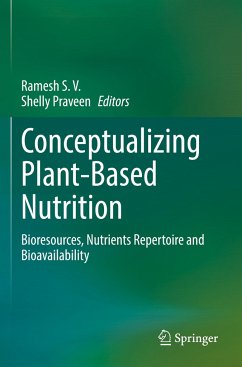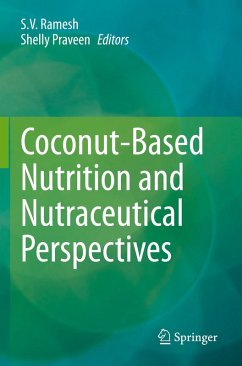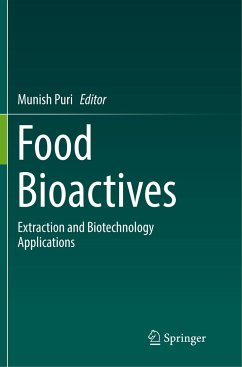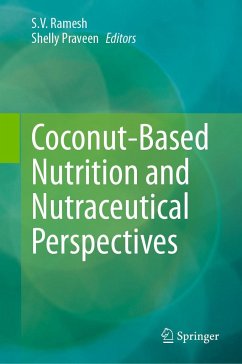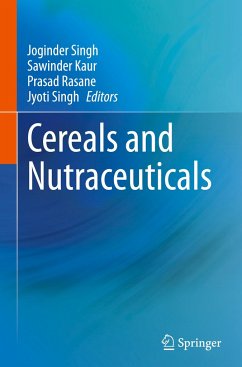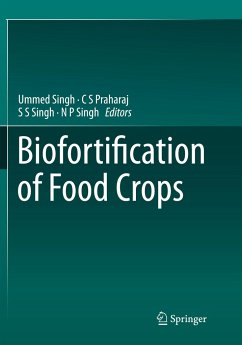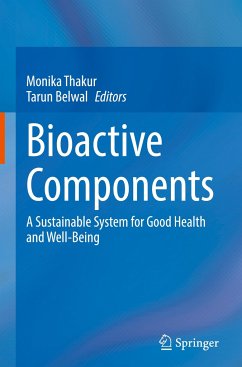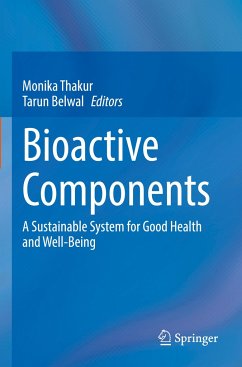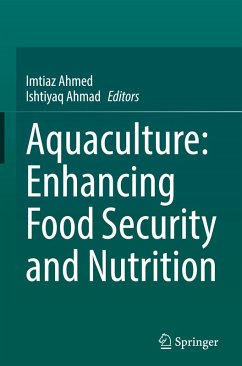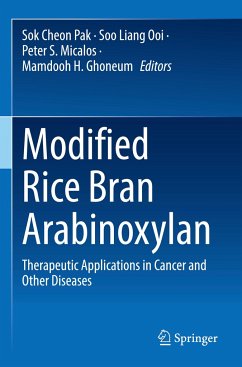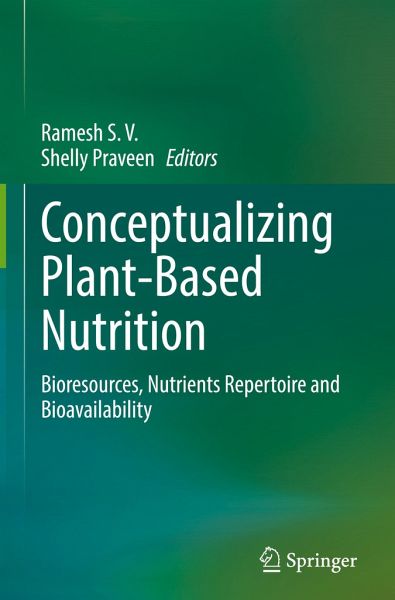
Conceptualizing Plant-Based Nutrition
Bioresources, Nutrients Repertoire and Bioavailability
Herausgegeben: S. V., Ramesh; Praveen, Shelly

PAYBACK Punkte
38 °P sammeln!
This book deliberates on the various aspects of plant-based nutrition. Plant-based nutrition has numerous potential health benefits as it is low on calories nevertheless high on nutrient density and satiety, and also nutrient supplementation makes them wholesome diets.Starting with the importance of biodiversity contributing to the nutrition, the book discusses the development or utilization of nutrient-dense crops/foods with their bioavailability properties and health effects. Further, it deals with the enrichment of micronutrients through bio-fortification, fortification, the role of food ma...
This book deliberates on the various aspects of plant-based nutrition. Plant-based nutrition has numerous potential health benefits as it is low on calories nevertheless high on nutrient density and satiety, and also nutrient supplementation makes them wholesome diets.Starting with the importance of biodiversity contributing to the nutrition, the book discusses the development or utilization of nutrient-dense crops/foods with their bioavailability properties and health effects. Further, it deals with the enrichment of micronutrients through bio-fortification, fortification, the role of food matrix, and nutrient bioavailability, including the role of plant-based milk alternatives. The linkage between food and health is also being discussed in the context of anti-nutritional factors, metabolic fate of the food, and genomics. Finally, the implications of next-gen biotech crops and food safety issues imperative to define the concept of safe nutrition are discussed.With contributions from plant nutrition experts, this book serves as a one-stop reference for plant scientists, food technologists, and nutritionists looking to understand the concept of plant-based nutrition and its linkage with human health.



